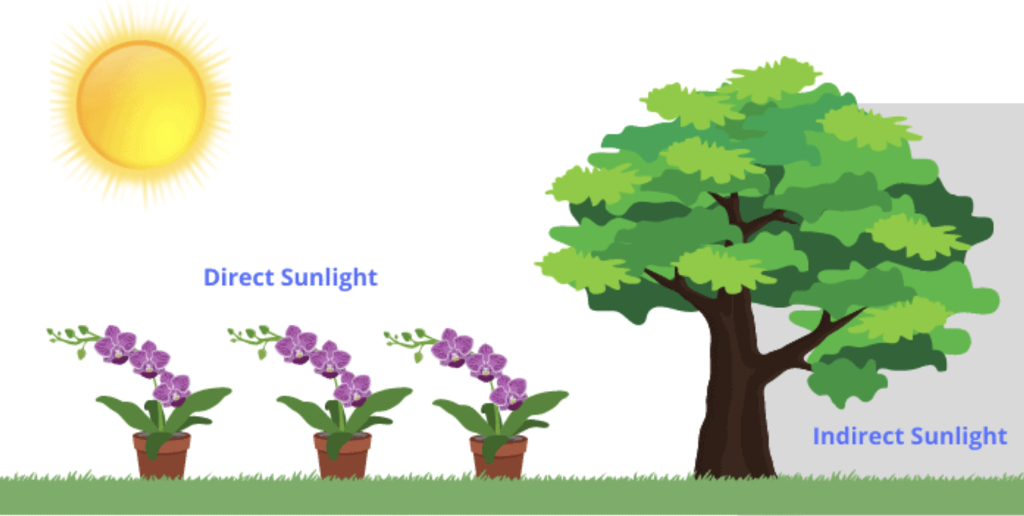Do Solar Lights Need Direct Sunlight to Work?
Home – Info Center – Blogs –
Do Solar Lights Need Direct Sunlight to Work?

By Michael Zhang || Updated on 10th Nov 2024
Michael Zhang is a seasoned professional with 15 years of experience in the solar lights industry. Throughout his career, he has been actively involved in product design and developing, gaining valuable expertise and insight into the industry. Known for his dedication and professionalism, Michael has contributed significantly to the growth and success of various solar lights projects. His extensive knowledge and hands-on experience make him a trusted authority in the field, and he continues to innovate and excel in his role.
Many customers often ask if solar lights must rely on direct sunlight to work. In fact, solar lights are not limited to charging in direct sunlight, but can also be energized by diffused light.
Table of Contents
How Do Solar Lights Work?
During the day, the solar light’s battery panel absorbs light energy from the sun and converts the light energy into electricity, which will be transferred to the battery for storage. The light sensor then detects changes in the ambient light. When it’s dark, the light sensor will automatically activate the lighting system, allowing the light to start working; and when it’s light, the light sensor will automatically turn off the light and start a new round of charging process.

Do Solar Lights Need Direct Sunlight to Work?
To better answer this question, let’s compare the charging of the three cases.
The Effect of Direct Sunlight on the Charging Efficiency of the Panel
Direct sunlight allows the solar panel to operate in the most efficient state. Usually, if the solar light is placed in a state of direct sunlight, it can be fully charged in basically 3-4 hours, so the charging effect is the best, which is of course a very ideal working condition.
Charging of Solar Lights Under Cloudy or Shaded Conditions
Alternating between cloudy and sunny days tends to be the weather that occurs more often in life. In this case, although the panels can still get some energy, it often takes longer to get the same amount of energy because of the reduced light intensity, usually 6-8 hours, which can easily result in the batteries failing to be fully charged, which leads to a shorter period of time that the solar light stays on at night.
Whether the Diffuse Light is Enough to Support the Work of Solar Lights
If you can’t see the sunlight all day long, and you can only see dark clouds overhead, then this means that the energy of the solar panel comes from diffuse light, although the intensity of diffuse light, but most of them are insufficient, but the solar panel can still use diffuse light for charging, but the energy gained will fall off a cliff, and it is often not enough to support the solar light to work all night.
How to Use Solar Lights Scientifically?
Based on the above three weather conditions, we need to adjust to adjust the solar light to the appropriate mode to cope with the above state.
(The following operation only applies to solar lights with multiple light modes)
In sunny weather, it is recommended to use the constant light mode, because the direct sunlight during the daytime has already provided the solar light with power enough to support the power needed to light up the light for the whole night.
In cloudy and rainy days, it is recommended to use the PIR mode to adjust the light to the mode that the light goes out after people leave and comes on when people come, this mode can save power and achieve the effect of daily lighting.
How to Improve the Efficiency of Solar Lights?
When shopping for solar lights, we try to go for high quality solar lights as much as possible, and better quality solar lights tend to have the following characteristics:
- high quality solar panels, mainly monocrystalline silicon
- large capacity and high quality batteries, mainly lithium batteries and lithium iron phosphate batteries.
- efficient LED lamp beads, the higher the luminous efficiency of the lamp beads, the more energy-saving.
- with a clear warranty commitment, good solar lights tend to be at least 2 years warranty.
In addition to this, we also try to install the solar light in a location with sufficient sunlight and no shade around it. During the usage, we need to clean the solar panel every 2-3 months to make sure that there is no dust covering its surface.
Wrapping Up
Without the role of solar energy, solar lights will lose all the significance of existence, but whether it is direct sunlight or indirect sunlight, can provide energy to solar lights, just to ensure that the solar lights in the night for a long time and stable light, during the daytime you need to try to install them in a place with sufficient sunshine.
Related Blogs
February 12, 2025
Share Via:
Get in Touch with Us Now!
Got questions or feedback? We’d love to hear from you! Just fill out the form below, and our friendly team will respond ASAP.
